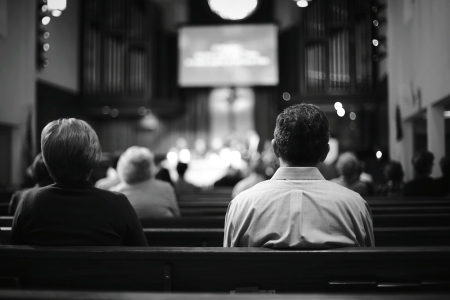What changes with a move from a church of 50 to a church of 150

All churches have leadership challenges, regardless of size. Small churches are not easier to lead than large churches. Large churches are not easier to grow than small churches. But they are different. When pastors move from one size church to another, they have to adapt.
One common pastoral transition is to move from a church of 50 congregants to a church of 150. I won’t get into whether a pastor should make this move or not. Let’s assume the move is God’s will. What changes should this pastor expect? The question came through Church Answers Central, a forum for church leaders, and I thought it made for a good post.
Some expectations remain the same. I’ll start the list with something that doesn’t change, but I’ve added it here because it’s a surprise to many pastors who make the transition from 50 to 150. Many people still want you at birthday parties, at ballgames, and in hospital rooms. You have to learn how to say “no” graciously to more people.
Formalities and structure increase. In a church of 150, there are more formalities. Business meetings and Robert’s Rules of Order become more commonplace. There is also more structure, likely more committees and official groups.
Less individual attention. The larger the church, the less individual attention a pastor can give to people. Leadership approaches shift from one-on-one in small churches to groups of people in larger churches. Many pastors who make the transition become frustrated for a season because they cannot meet the needs of every individual. The key here is to equip other leaders and invest in them, training them to multiply themselves.
Fewer family-run churches. At 150 people, it’s tough for one family to run the church, but two or three families can form coalitions and wield power.
Operational tasks decrease. When I pastored a church of 30 people, I changed all the light bulbs and prepared the financials (which meant balancing the checkbook). In a church of 150, these tasks shift to volunteers.
Directives shift. In a church of 150, pastors give more directives to teams and committees as opposed to individuals.
Micromanagement in a church of 150 will kill you. Don’t even try.
Diplomacy and statesmanship start to enter pastoral leadership at a church of 150 (and becomes quite important around 500 people).
When you make the transition from 50 to 150, things change, but a few things stay the same: People still sin. Bullies still attack. Leaders will disappoint. Stress is still intense. But the Groom still loves His bride!
Originally published at Church Answers
As President of Church Answers, Sam Rainer wears many hats. From podcast co-host to full-time Pastor at West Bradenton Baptist Church, Sam’s heart for ministry and revitalization are evident in all he does.




















